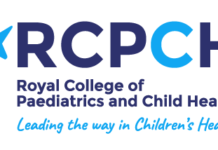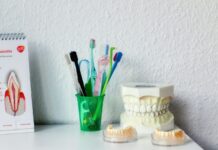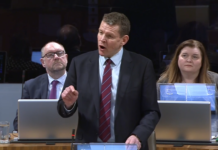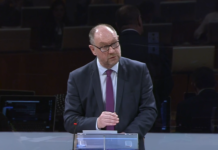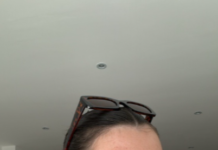Across all indices we are seeing signs our kids, teens and young adults are suffering and their wellbeing needs aren’t being met. So, this Easter school holidays make the time to invest in your children’s mental health. Here mental health expert Noel McDermott look at how families can improve their internal emotional resources and prioritise health strategies to repair and heal.
Mental health expert Noel McDermott comments: “Currently all indications are that kids’ mental health is significantly worse with school absences rising, hospital admissions going up for serious issues such as eating disorders, self-harm, young adults disproportionately off sick from the workforce, child and adolescent mental health (CMHT) services swamped and unable to cope. There are many factors involved in this but in straightforward terms there have been series of back-to-back unprecedented existential crisis for the UK and the world since 2016. These real-world stresses exist at a time when the ‘village that helps raise a child’ in modern UK (our health, educational, social care, and mental health infrastructure) has been ground down via austerity and cost of living and inflation issues”.
There are many things you as a family can do:
- Lifestyle Medicine – ensure you have the 4 corners of health and wellbeing in place:
1. Exercise/active life. The single biggest health improvement you can make is to have regular exercise as a family, ideally 3 times a week for 20 minutes, raising your heartbeat is what you want to aim for, anymore and that’s a bonus!
2. Stress management. Relaxation and stress management are crucial to physical and psychological health. Stress is implicated in all major lifestyle illnesses and every manifestation of psychological distress. Learning to spot and reduce stress reactions is central to living a healthy life.
3. Diet. Having a heathy balanced diet contributes massively to a healthy mind and body. When preparing family meals try to reduce processed foods, eat a mix of 80-20 vegetable and fruit to meat, control portion size and reduce sugar.
4. Sleep. Good sleep hygiene is essential to healthy living. Sleep deprivation is a form of torture due to the psychological consequences of missing REM sleep cycles. So, work together to practice good hygiene in your sleep habits; don’t drink stimulants at night, exercise, have a simple and regular bedtime routine, reduce blue screen activity at night and don’t use your phones in bed.
- DOSE yourself up! Dopamine, oxytocin, serotonin, endorphins are reward hormones that promote health and wellbeing and engaging in activities that promote these will make life much more pleasant and rewarding. Some of these hormones you will get from the lifestyle medicine suggestions, endorphins come from exercise for example but using the DOSE mnemonic you can get more bang for your buck, for example, if you start running together as a family you will get plenty of endorphins, if you add running outside you will get extra serotonin hormones for free. So, learning your DOSE activities really can pay off hugely.
- Organise and agitate. Now we are approaching a general election it’s your time to get your children’s mental health on the agenda. Organise your networks to write to the relevant politicians standing for election to pledge to invest in the village we need for our kids. Civil society organisations have been demonstrated for a long time to have a positive disruptive influence on health indictors and getting involved with them will be a positive contribution to helping shape the health and care agenda https://www.ncbi.nlm.nih.gov/books/NBK459047/
Here are some evidence-based tips that work to help with health and wellbeing:
- Get educated – psychological education is vital and the UK has a huge set of resources from NICE (National Institute for Health and Care Excellence). If you want to know about a condition don’t randomly google, search via NICE e.g., NICE guidance on children and depression.
- Learn CBT (cognitive behavioural therapy) as it was designed to be used by lay people and it is a set of techniques, tools and behaviours that manage and prevent psychological distress. MIND have some great signposts here https://www.mind.org.uk/information-support/drugs-and-treatments/talking-therapy-and-counselling/cognitive-behavioural-therapy-cbt/#CanIDoCBTByMyself or you can buy Mind Over Mood which is a central workbook full of loads of practical exercises.
- Learn MBCT (mindfulness based cognitive behavioural therapy) Jon Kabbat-Zim is the go-to person here and also follow the advice above NICE advice it for less severe depression for example. MIND have some great resources https://www.mind.org.uk/information-support/drugs-and-treatments/mindfulness/how-to-learn-mindfulness/
Mental health expert Noel McDermott is a psychotherapist and dramatherapist with over 30 years’ work within the health, social care, education, and criminal justice fields. His company Mental Health Works provides unique mental health services for the public and other organisations. Mental Health Works offers in situ health care and will source, identify and co-ordinate personalised teams to meet your needs – https://www.mentalhealthworks.net/
For further information or for press enquiries please contact Natalie Clarke on 07796675950 or email natalie.clarke@beabeargroup.com
Help keep news FREE for our readers
Supporting your local community newspaper/online news outlet is crucial now more than ever. If you believe in independent journalism, then consider making a valuable contribution by making a one-time or monthly donation. We operate in rural areas where providing unbiased news can be challenging. Read More About Supporting The West Wales Chronicle







